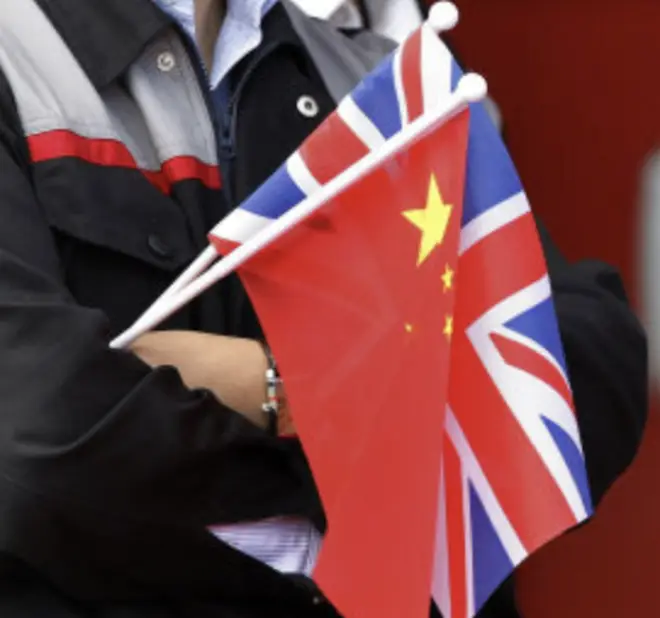
Rachel Johnson 7pm - 10pm
21 April 2021, 20:32 | Updated: 21 April 2021, 20:50

Aid to China is set to be slashed by 95% to less than £1 million, Foreign Secretary Dominic Raab has said.
The slash comes as part of wider foreign aid budget cuts, described as marking "a strategic shift", but comes amid diplomatic tensions between the two states.
It brings the UK's aid spending on China to just £900,000, with some additional money used to meet previous contractual agreements.
In a written statement to Parliament, Mr Raab said: "The resulting portfolio marks a strategic shift, putting our aid budget to work alongside our diplomatic network, our science and technology expertise and our economic partnerships in tackling global challenges."
Read more: David Cameron and Tony Blair warn against proposed foreign aid cuts

Keir Starmer clashes with Boris Johnson over cutting aid to Yemen
The move comes weeks after the UK and China exchanged sanctions over the abuse of Uighur Muslims in Xinjiang province.
The cuts outline how £8.11 billion of the aid budget will be spent – or 80% of the UK's total spend on aid.
Work will mostly focus on countries most affected by risk of famine, including Yemen, Syria, Somalia and South Sudan.
The Government has dropped its manifesto commitment to spend 0.7% of national income on overseas aid, reducing it to 0.5%, after the economic damage brought by the coronavirus pandemic.
Just under £10 billion is expected for aid across all departments for the next year.
Read more: Cutting aid to Yemen is 'appalling dereliction of duty', Conservative MP says
The announcement has worried charities, including Oxfam, which urged a rethink on the reduced spending during a pandemic and said it was "extremely concerned" by the announcement.
The Government was urged earlier in the week to put the aid cut to a vote in the Commons following Labour's criticism that it removes "a lifeline from hundreds of thousands of people".
But Mr Raab said poverty reduction, girls' education and urgent humanitarian response would be focused on, alongside climate change, Covid recovery and other international health priorities.